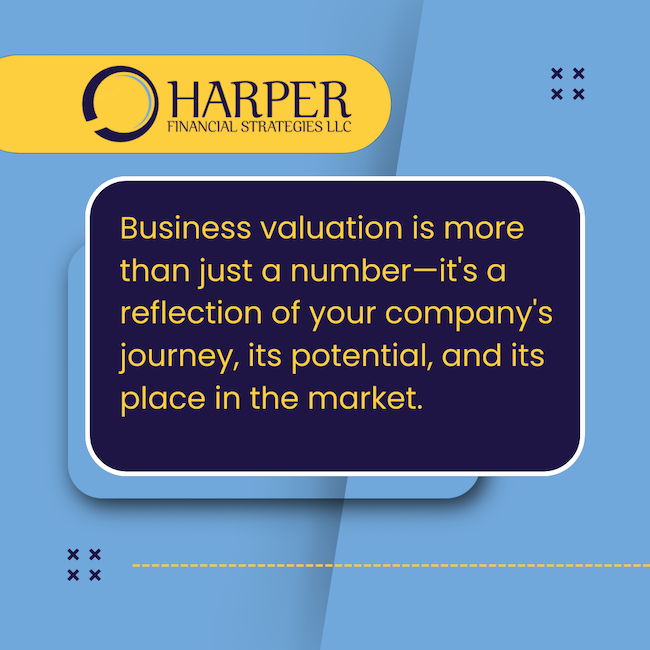In the world of business, understanding the true value of your enterprise is akin to having a compass that guides your strategic decisions. Whether you're contemplating a sale, seeking investors, or planning for the future, calculating business valuation is an essential step that can illuminate the path forward. In this guide, we'll unravel the complexities of business valuation, exploring its importance, the various methods available, and the factors that can influence the outcome. We'll also discuss common pitfalls and the benefits of hiring a professional to ensure your valuation is as accurate as possible.
The Importance of Calculating Business Valuation
Before diving into the technicalities, it's vital to grasp why business valuation matters. At its core, a business valuation provides a snapshot of your company's economic worth. This information is invaluable for several reasons:
- Informed Decision-Making: Knowing your business's value aids in making strategic decisions, such as expansion, mergers, or acquisitions. It ensures you're not flying blind when it comes to critical business moves.
- Attracting Investors: Investors want to know the worth of the business they're investing in. A well-calculated valuation can bolster investor confidence and facilitate funding.
- Exit Strategy Planning: If you're considering selling your business, a valuation helps set a realistic asking price, ensuring you receive fair compensation for your hard work.
- Tax and Legal Compliance: Valuations are often required for tax purposes, estate planning, or legal disputes. An accurate valuation ensures compliance and can prevent costly legal issues.
- Performance Benchmarking: Regular valuations can serve as a benchmark for measuring business performance over time, helping you identify growth opportunities and areas for improvement.
Different Methods of Business Valuation
Business valuation is not a one-size-fits-all process. Various methods can be employed, each with its own set of principles and applications. Let's explore the primary approaches:
The asset-based approach focuses on the company's net asset value. It involves calculating the total value of a company's assets and subtracting its liabilities. This method is particularly useful for businesses with substantial tangible assets, such as real estate or manufacturing companies.
While the asset-based approach provides a clear picture of a company's tangible worth, it may not fully capture the value of intangible assets like brand reputation or intellectual property.
2. Market-Based Approach
Precedent Transactions Method: This approach examines recent sales of similar businesses within the same industry. It provides insights into market trends and investor sentiment.
The market-based approach is highly dependent on the availability of comparable data and may not be suitable for unique or niche businesses.

The income-based approach focuses on the company's ability to generate future cash flows. It's often considered the most comprehensive method, as it accounts for both tangible and intangible assets.
Discounted Cash Flow (DCF) Method: This method projects future cash flows and discounts them to present value using a discount rate. It's widely used for businesses with predictable cash flows.
Earnings Multiplier Method: This approach applies a multiplier to the company's earnings, reflecting industry standards and growth prospects.
The income-based approach requires accurate financial projections and a thorough understanding of market conditions. It's particularly useful for businesses with strong growth potential.
Factors to Consider When Calculating Business Valuation
Several factors can influence the outcome of a business valuation. It's essential to consider these variables to ensure accuracy:
- Industry Trends: The economic landscape and industry-specific trends can impact a company's valuation. Staying informed about market dynamics is crucial.
- Financial Performance: Historical financial data, including revenue, profit margins, and cash flow, play a significant role in determining value.
- Growth Potential: A company's future growth prospects, such as expansion plans or new product lines, can enhance its valuation.
- Competitive Position: A strong market position and competitive advantages can boost a company's perceived value.
- Intangible Assets: Brand reputation, intellectual property, and customer relationships are intangible assets that can significantly impact valuation.
Common Mistakes to Avoid in Business Valuation
While calculating business valuation, it's easy to fall into common traps that can skew results. Here are some pitfalls to watch out for:
- Overlooking Intangible Assets: Neglecting intangible assets can lead to undervaluation. Ensure these assets are accurately accounted for.
- Relying on Outdated Data: Using outdated financial information can result in an inaccurate valuation. Always use the most recent data available.
- Ignoring Market Conditions: Failing to consider current market conditions can lead to unrealistic valuations. Stay informed about industry trends and economic factors.
- Using a Single Valuation Method: Relying on just one method can provide a limited perspective. Consider using multiple approaches to get a comprehensive view.
Hiring a Professional for Business Valuation
Given the complexities involved, many business owners choose to hire professionals for their valuation needs. Engaging a certified business appraiser or valuation expert offers several advantages:
- Expertise and Experience: Professionals bring a wealth of knowledge and experience, ensuring a thorough and accurate valuation.
- Objectivity: An external expert provides an unbiased assessment, free from emotional attachments that can cloud judgment.
- Compliance and Documentation: Professionals ensure that the valuation complies with legal and regulatory requirements, providing comprehensive documentation for future reference.
While hiring a professional incurs a cost, the benefits often outweigh the expense, especially when significant financial decisions are at stake.
Conclusion: The Significance of Accurate Business Valuation
In the ever-evolving landscape of business, an accurate valuation serves as a cornerstone for informed decision-making. It empowers business owners to navigate opportunities and challenges with confidence, ensuring that strategic moves align with their financial goals. Whether you're preparing for a sale, seeking investment, or planning for the future, understanding the true value of your business is an investment in its success.
By exploring the various methods of business valuation, considering key factors, and avoiding common mistakes, you can achieve a valuation that reflects your company's true worth. And when in doubt, enlisting the expertise of a professional can provide the clarity and assurance needed to make sound financial decisions.
In the end, business valuation is more than just a number—it's a reflection of your company's journey, its potential, and its place in the market. Embrace this process as a valuable tool in your entrepreneurial toolkit, and let it guide you toward a prosperous future.
Web Sources
https://www.investopedia.com/terms/b/business-valuation.asp
https://www.uschamber.com/co/run/finance/how-to-calculate-business-valuation

